| 8 mins read
The 2022 Northern Ireland Assembly election reordered the top two parties whilst illuminating the growth of Alliance as a centrist force beyond unionism and nationalism.
Sinn Féin has ascended from a minor IRA political outlet to Northern Ireland’s largest party. Meanwhile, the election indicated considerable unionist opposition to the EU Northern Ireland Protocol, the region’s distinctive Brexit agreement, and confirmed the continuing rise of the cross-community Alliance, now Northern Ireland’s third largest party.
The full results are shown below.
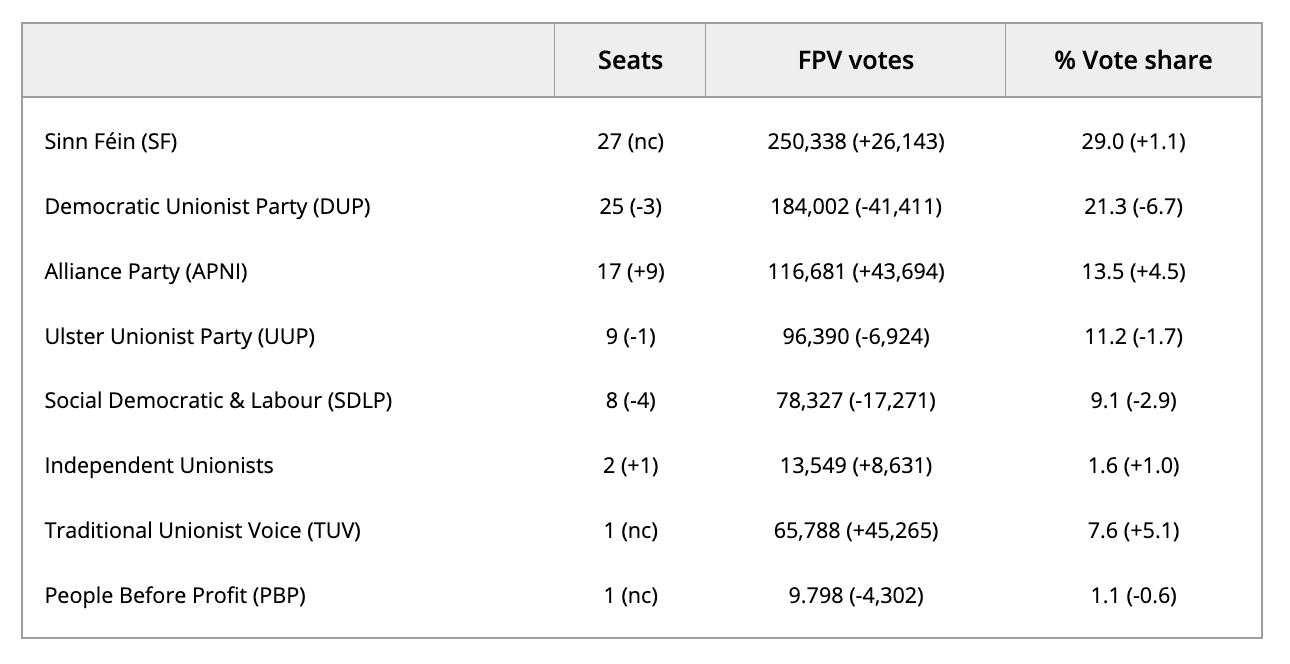
Table 1. The Northern Ireland 2022 Assembly election result (change from 2017 Assembly election in brackets)
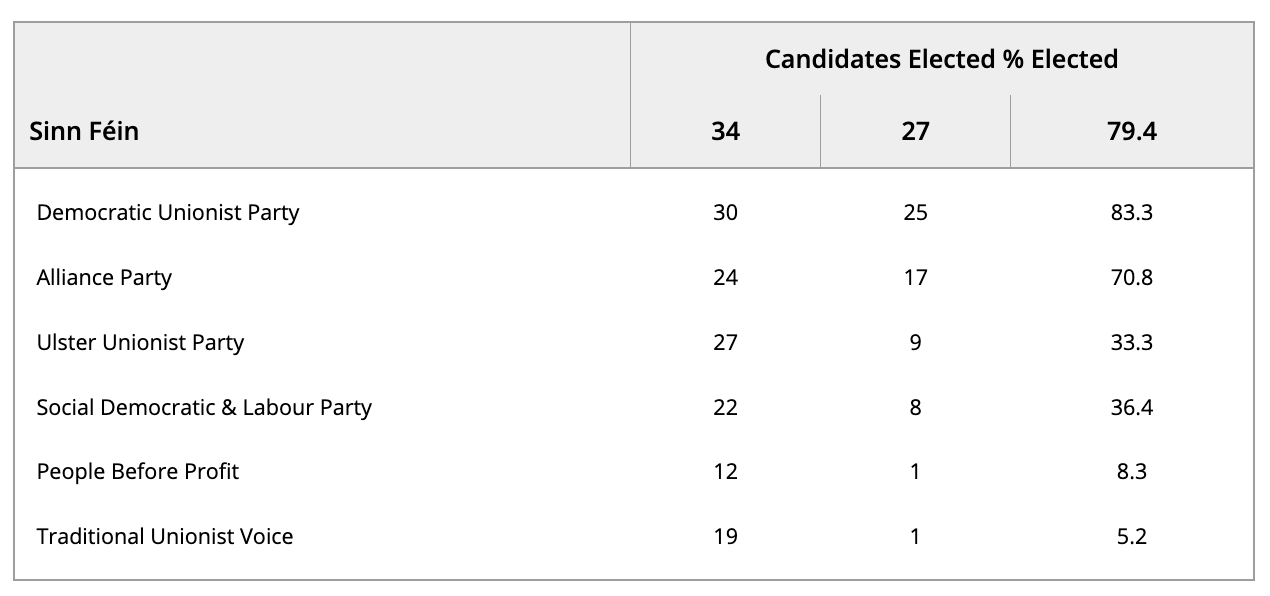
Table 2. Percentages of successful candidates by party, 2022 Northern Ireland Assembly election. Note: Excludes the two independent unionists elected.
In Northern Ireland’s electoral system of single transferable vote, there can be many stages of counts before candidates are elected. More than half of Sinn Fein’s candidates were elected on the first count, whereas the DUP had only two elected at this stage. Alliance had fifteen of its seventeen candidates elected between count stages two and ten, shown in full below. The Assembly comprises 37 unionists (41 percent), 35 nationalists (39 percent) and 18 others (20 percent). Unionism lost its overall Stormont majority in 2017, and it seems unlikely to return.
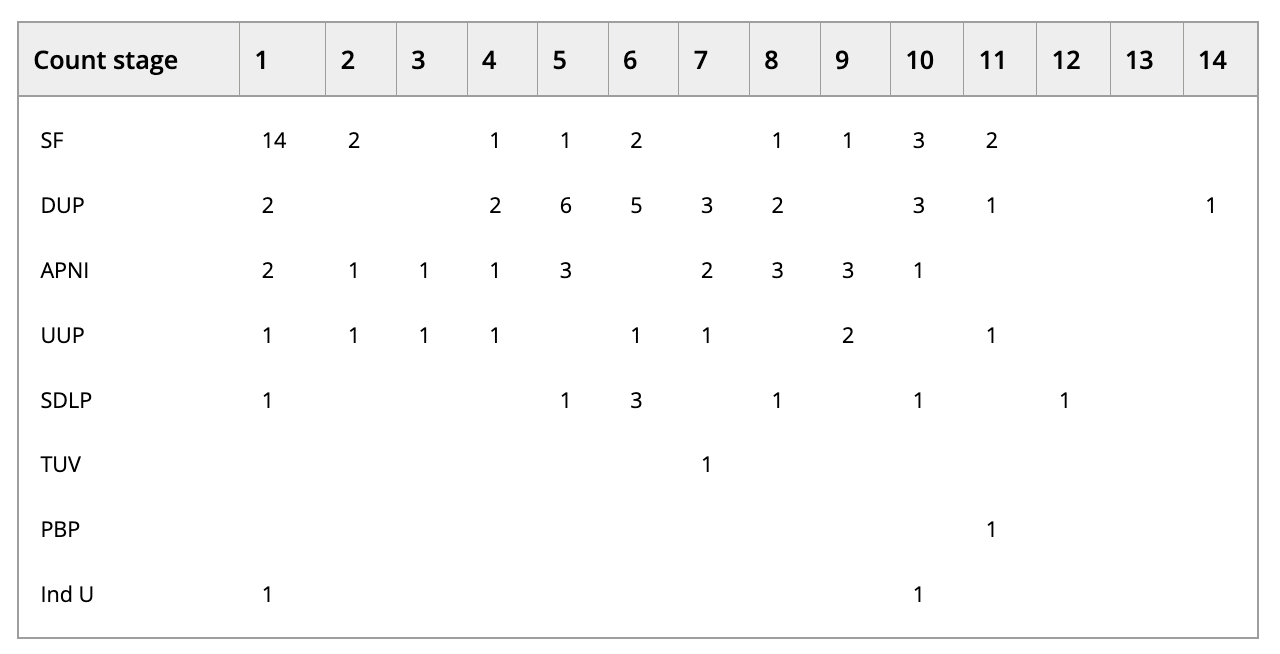
Table 3. Count stage at which candidates elected, 2022 Northern Ireland Assembly election
The Continuing Rise of Sinn Féin
Sinn Féin’s 250,388 votes represented a record high for the party, growing more than 100,000 since the first Assembly election in June 1998, immediately following the Good Friday Agreement. Sinn Féin overtook the SDLP among nationalists at the 2001 Westminster election and has been ascendant since.
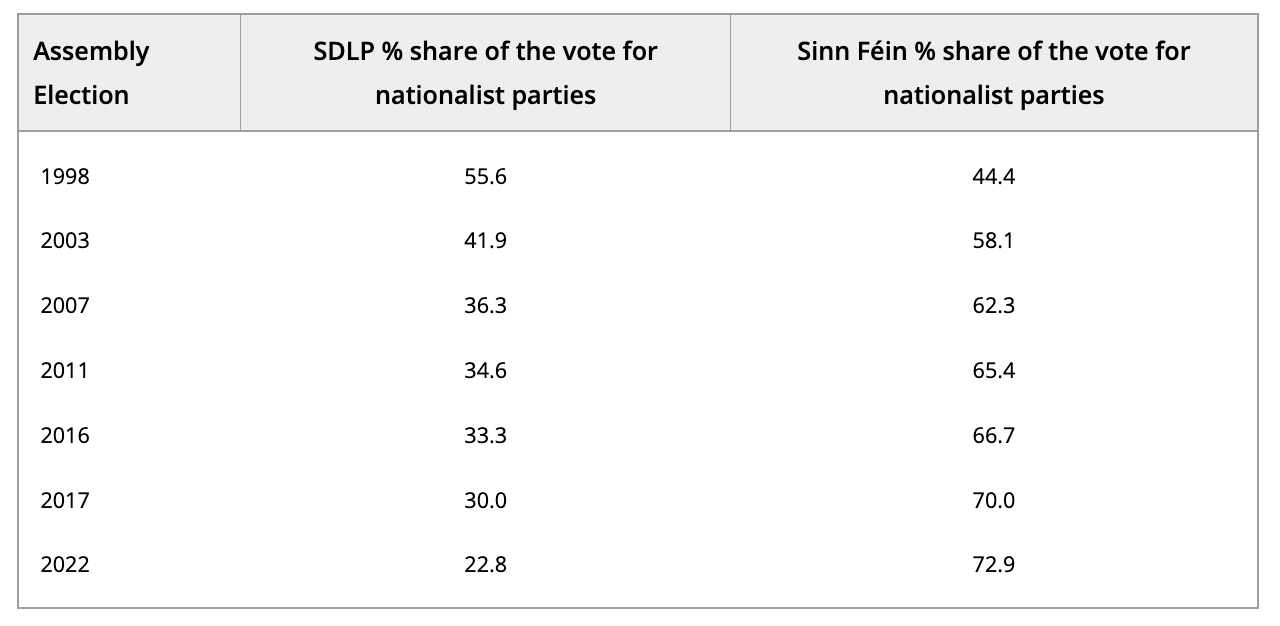
Table 4. Nationalist party bloc vote shares, Northern Ireland Assembly Elections 1998–2022
As the largest nationalist party in the Assembly, Sinn Fein was previously entitled to nominate the Deputy First Minister, with equal powers to the First Minister. Now, as the largest party outright, it is entitled to nominate the First Minister. However, role fulfilment requires the largest unionist party, the DUP, to join Sinn Féin’s northern leader, Michelle O’Neill, in loveless political matrimony by nominating a Deputy First Minister – a complete role reversal. The DUP has, since the election, declined the proposal.
While Sinn Féin’s 2022 election manifesto demanded a date for a referendum on Irish reunification, this is not an immediate priority. Instead, it is occupied with the health service and cost of living crisis. Both Sinn Féin and the DUP pledged an extra £1bn of expenditure on the NHS. Sinn Féin pledged £230 to every household to assist with cost-of-living concerns.
Focussing upon economic and social concerns helped Sinn Féin hold all its Assembly seats and achieve a marginal vote share rise. The DUP argued that Sinn Féin taking the First Ministership would create endless talk of Irish unity. This argument may have assisted Sinn Féin: nationalists determined to promote reunification may have been convinced to vote for Sinn Fein to assist this and ensure a nationalist First Minister.
The DUP’s Absence from Stormont
The DUP demanded removal of the internal UK trade border created under the EU Northern Ireland Protocol. Opposition to an internal UK trade border registered high on unionist election concerns, albeit below health and economy. Despite this demand, the DUP still lost more than 40,000 votes at this election, whilst the Traditional Unionist Voice gained a similar number. These TUV votes meant that the DUP’s share of the unionist bloc vote, whilst still an overall majority, fell to its lowest since 2003, shown below. Unionism’s divisions helped Sinn Féin to the First Minister post.
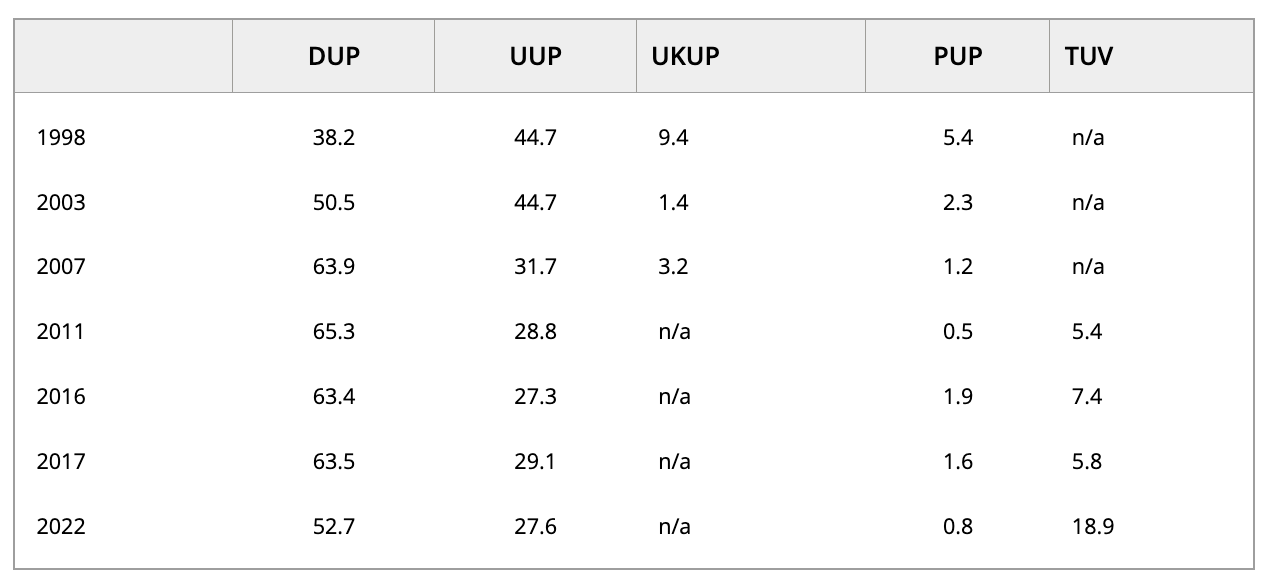
Table 5. Unionist party percentage shares of the Unionist bloc vote, Assembly elections 1998–2022. Note: Unionist political parties only. Excludes shares won by individual independent unionist candidates which were sizeable in some cases
After the election, the DUP also declined to help provide a cross-community majority for a new Speaker, ensuring a new Assembly could not sit. It seemed evident that only substantial movement on the Protocol would sway the DUP. In June 2022, the UK government introduced domestic legislation to disapply the Protocol. Checks on goods entering Northern Ireland from Britain would be confined to those heading to the Irish Republic, rather than merely being ‘at risk’ of doing so and removing the European Court of Justice as the Protocol’s arbitrator. The government hoped this would eventually entice the DUP back into the political institutions.
The Rise of the Centre Ground: the Alliance Party
The election confirmed the continuing rise to third largest party of the cross-community Alliance Party. Its 13.5 percent first preference vote tally was significantly higher than its single figure vote share at every previous Assembly election. Alliance’s main vote is from those identifying as neither unionist nor nationalist. This category is the largest type of elector, at 38 percent.
Alliance insists it will decide a position on a border poll only when one is called. For Alliance, non-constitutional issues are priority. The party’s ninety-page manifesto outlined a plethora of proposals on reforming Northern Ireland.
It also focusses on breaking stalemates in maintaining the Executive and Assembly. At present, if the largest unionist or nationalist blocs refuse to nominate a Deputy or First Minister, this collapses the Executive. Alliance proposes the right to nominate Deputy and First Ministers be filled by the two largest parties, passing to the next largest when parties refuse, to prevent deadlock.
What next?
Political paralysis is not new in Northern Ireland. The Executive has been absent almost 40 percent of the time since devolution began in 1999. In the longer-term, questions have been raised by Sinn Féin’s advance, given a referendum over Irish unity does not seem likely any time soon.
The party also looks to become the largest in the Irish Republic at the next election. If this happens, political pressure for a constitutional referendum will surely grow. But power to call a border poll in Northern Ireland rests purely with the British Secretary of State. The Good Friday Agreement declares a vote must be called if it looks likely that Northern Ireland would vote for Irish reunification. Current ‘poll of polls’ on Irish unity from the North suggests 36 percent in support versus 49 percent favouring the status quo – insufficient to trigger a border poll.
Although the 2022 election reordered the top two parties and displayed the growth of centrism, it is unclear what this election will achieve in the short term. The election needs to be followed by movement on the EU Protocol to restart the devolved power sharing central to the Good Friday Agreement.
Need help using Wiley? Click here for help using Wiley







